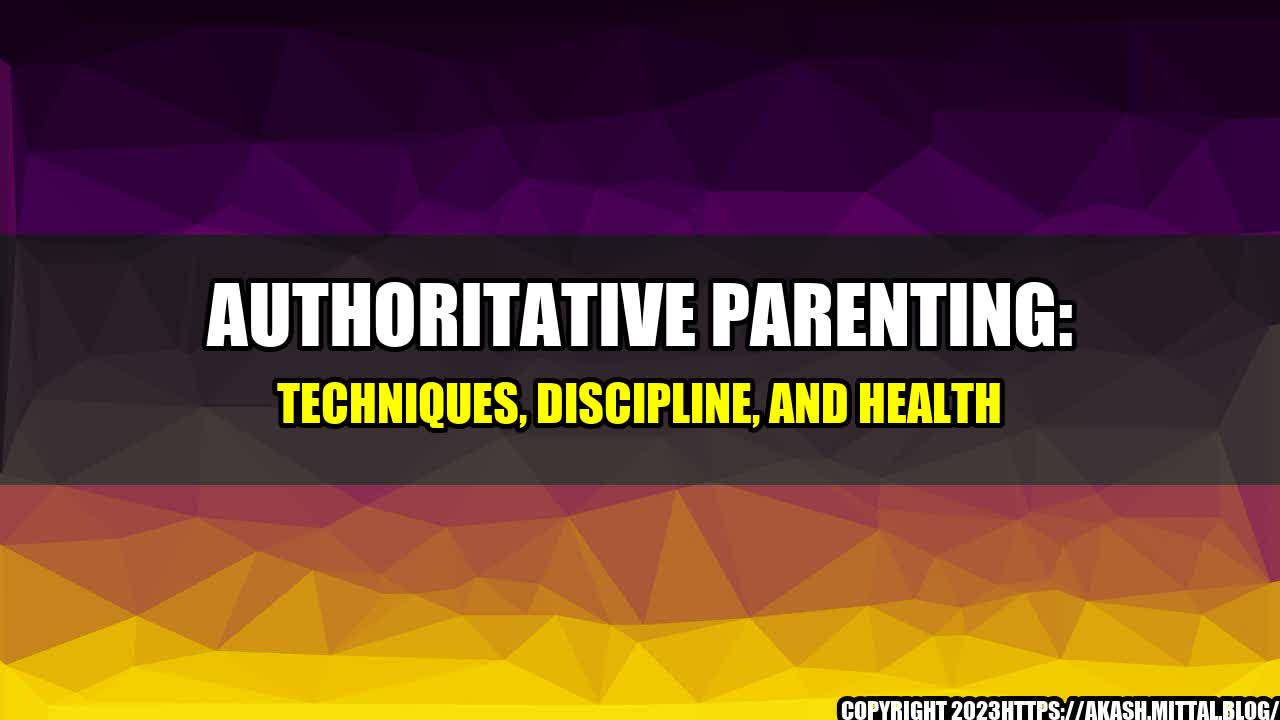When I was a kid, my parents always told me what to do. They never gave me the chance to make my own decisions and learn from my mistakes. As a result, I often rebelled and made poor choices in my teen years.
Now that I'm a parent, I realize the importance of raising kids with a sense of independence and responsibility. That's where authoritative parenting comes in.
What Is Authoritative Parenting?
According to psychologists, authoritative parenting is a style of child-rearing that involves setting clear boundaries and rules while also maintaining open communication and nurturing relationships with your children. It's often described as a middle ground between authoritarian (strict and controlling) and permissive (lax and indulgent) parenting styles.
Here are some key characteristics of authoritative parenting:
- Consistent enforcement of rules and consequences
- Active listening and empathy for your child's feelings and thoughts
- Encouragement of independence and autonomy
- Setting high expectations for behavior and achievement
- Providing support, guidance, and positive reinforcement
Techniques of Authoritative Parenting
To put authoritative parenting into practice, here are some effective techniques:
Active Listening
When your child comes to you with a problem or concern, take the time to really listen and empathize. Don't dismiss their feelings or jump to conclusions. Ask questions to get a better understanding of the situation, and offer support and guidance.
Positive Reinforcement
Instead of just punishing bad behavior, focus on rewarding good behavior. Praise your child when they make good choices or reach a goal. This will reinforce positive behavior and motivate your child to continue doing well.
Consistent Boundaries
Establish clear rules and consequences, and stick to them. This will help your child understand what is expected of them and feel secure in their environment. If you're consistent with your boundaries, your child will be less likely to test them.
Encourage Independence
As your child grows, give them opportunities to make choices and decisions on their own. This will help them develop their own sense of identity and confidence. However, don't let them make decisions that are dangerous or harmful.
Discipline in Authoritative Parenting
Discipline is an important aspect of authoritative parenting. Here are some guidelines for effective discipline:
Prevention
One way to avoid misbehavior is to prevent it from happening in the first place. This means anticipating potential problems and removing temptation or providing alternatives. For example, if your child tends to have tantrums at the grocery store, let them bring a small toy or book to occupy them.
Logical Consequences
If your child does misbehave, it's important to follow through with a consequence that is logical and related to the behavior. For example, if your child throws a toy and breaks something, they might have to help clean up or give up a favorite toy for a short time.
Time-Outs
Time-outs can be effective for younger children who need a break from a situation or behavior. Make sure to explain the reason for the time-out, and keep it brief. Use this time to calm down and reflect on the behavior.
Positive Reinforcement
As mentioned earlier, positive reinforcement can also be used for discipline. If your child makes a mistake but then corrects it, praise their effort and improvement.
Health Benefits of Authoritative Parenting
Research has shown that authoritative parenting can have a positive impact on a child's health and development. Here are some examples:
Physical Health
Authoritative parents are more likely to encourage their children to be physically active and eat healthy foods. This can lead to better overall health and lower risk of obesity and other health problems.
Mental Health
Children raised in authoritative households tend to have better emotional regulation and fewer behavioral problems. They are also less likely to experience anxiety or depression later in life.
Academic Achievement
Authoritative parents set high expectations for their children's academic success, and provide support and resources to help them achieve these goals. As a result, their children are more likely to excel in school and have greater opportunities for future success.
Conclusion
So there you have it – authoritative parenting is a compassionate yet firm approach that can help your children thrive. Remember to be consistent with your rules and consequences, listen actively to your child's concerns, and encourage their independence and autonomy. By doing these things, you'll raise happy, healthy children who are ready to face the challenges of the world with confidence.
- Set clear boundaries and rules
- Maintain open communication and active listening
- Encourage independence and autonomy

Curated by Team Akash.Mittal.Blog
Share on Twitter Share on LinkedIn